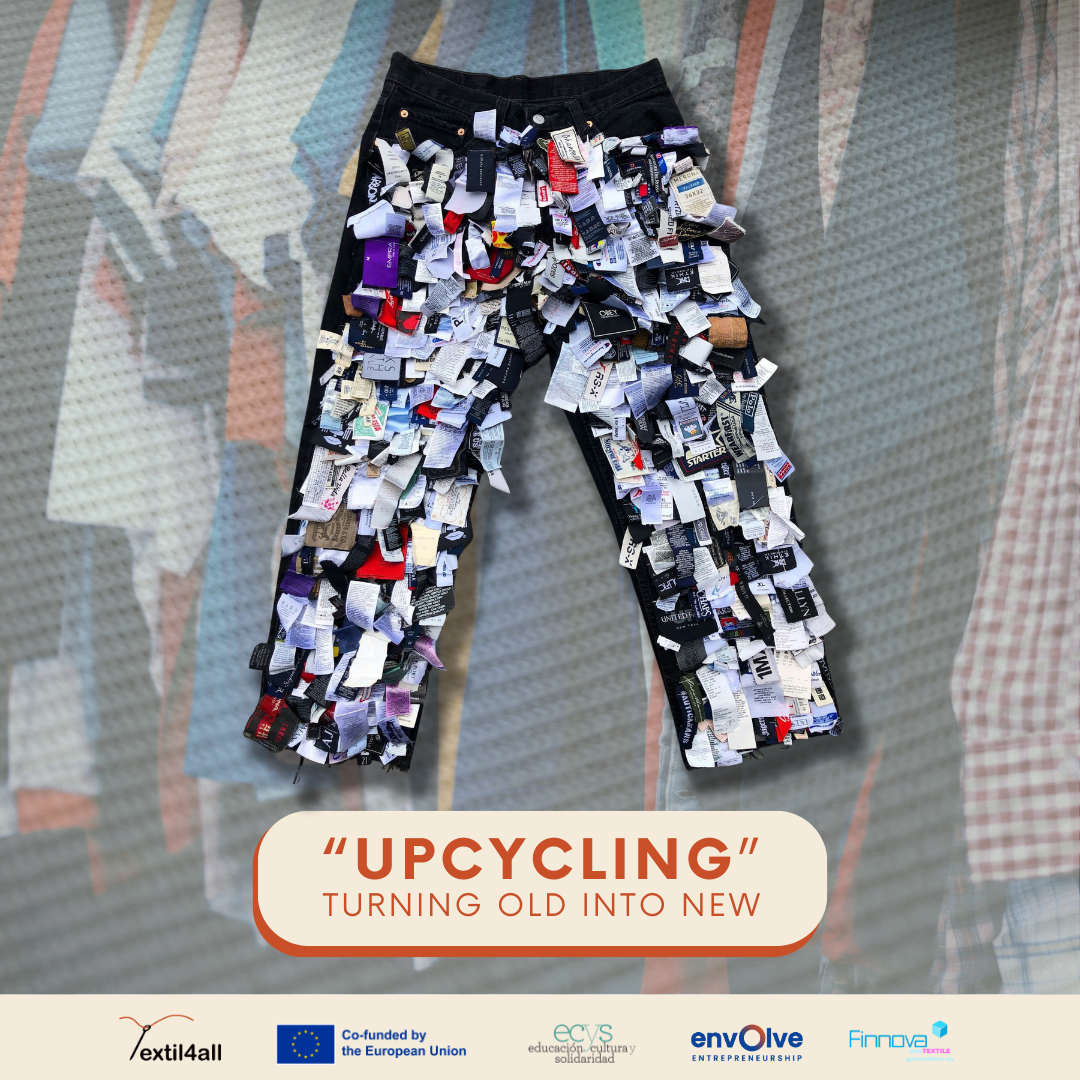- The Upcycling would be inside reusing, which encourages us to extend the useful life of a product, through modifying it to improve it, as well us buying second hand clothes.
- “We have reached a point in which sustainable fashion does not scream that it is, and that, undoubtedly, attracts masses.”
Upcycling is not the same as recycling: “Recycling takes consumer materials — mostly plastic, paper, metal and glass — and breaks them down so their base materials can be remade into a new consumer product, often of lesser quality” “When you upcycle an item, you aren’t breaking down the materials. You may be refashioning it but it’s still made of the same materials as when you started. Also, the upcycled item is typically better or the same quality as the original.”
Back in the 90s, Martin Margiela (member of the Antwerp 6: the iconic group of fashion designers who trained at Antwerp’s Royal Academy of Fine Arts) tried it, but it’s now -in the limit- when designers are starting to take this way of creating collections from reusing clothes and textiles, seriously.
Upcycling has the potential to transform the fashion industry in several ways. By reducing the demand for new materials and promoting the creative reuse of existing resources, it can help lower the carbon footprint and greenhouse gas emissions associated with garment production. Moreover, upcycling can contribute to a shift in consumer attitudes toward fashion. As people embrace upcycling, they may become more conscious of the environmental impacts of their purchasing decisions and more inclined to choose sustainable, ethically-produced garments over fast fashion.
Reduce, reuse and recycle
But, once the movement is known… how can we do it, being a consumer?
The system we are following is based on the three Rs: Reduce (new clothes buying), Reuse and Recycle. The first R is very important, as we only use the 20% of the clothes we have under control on our wardrove.
The Upcycling would be inside reusing, which encourages us to extend the useful life of a product, through modifying it to improve it, as well aus buying second hand clothes.
Only in Spain, 405.000 tons of textile waste is generated per year. If only we would reuse that amount of clothes, instead of abandoning them or creating new ones, we would save a massive amount of litres of water and CO2. “
«This consumer who is becoming aware still needs to put into practice what he thinks» states Mariola Marcet, Founder and CEO of UPCYCLICK and lecturer in «Master in Fashion Co-Design and Sustainability» EASD Valencia.
In fact, we could be now experiencing a real change on the upcycling fashion, with a big amount of brands which are finally hugging and creating really inspiring designs, catching the trend lovers attention and the important millenial and Gen Z.
“We have reached a point in which sustainable fashion does not scream that it is, and that, undoubtedly, attracts masses.” states Dio Kurazawa, denim director of trend forecasting agency WGSN and runs his own company, The Bear Scouts.
One of the main environmental benefits of upcycling is the reduction of waste. By repurposing old clothes, textile waste, and deadstock fabrics, upcycling diverts these materials from landfills and gives them a new life.
Upcycling also contributes to a lower carbon footprint in the fashion industry. By reusing existing materials, upcycling reduces the need for new raw materials and the associated greenhouse gas emissions from their extraction, transportation, and processing.
From Ttextil4all we are focused on contributing to this change by promoting a more sustainable textile industry and the green economy. We are committed to the current environmental challenges, achieving a Triple Impact: Environmental – social – economic. That is the main reason why we provide specific training to implement actions that contribute to the «ZeroWaste» and «Leave No One Behind».
Textil4all is part of the European Erasmus+ programme funded by SEPIE-Spanish Service for the Internationalisation of Education with a budget of 60,000 euros and a duration of 19 months. Led by Educación, cultura y solidaridad (Spain), the project counts with Envolve (Greece) and Finnova Foundation (Belgium) as partners.
Join us in this mission to make the textile sector an engine for positive change!
About Educación Cultura y Solidaridad (ECyS)
Educación Cultura y Solidaridad is a non-profit association whose mission is to promote the integral development of people so that they can be protagonists of their own history and collaborate in the construction of social problems, promoting participation and local development for a fairer world and an inclusive society. To this end, it carries out actions of socio-educational intervention with people and groups with greater difficulty of inclusion, promoting their empowerment. The Centre is consolidated and recognised in San Cristóbal de los Ángeles (Madrid) as a point of reference for families, children and young people from different backgrounds and young people at risk of exclusion, to whom it offers the possibility of socio-professional and academic training.
About ENVOLVE
Envolve is a global organisation that supports entrepreneurship and innovation. Envolve Greece is part of Libra Social Responsibility, with initiatives offering educational and entrepreneurial opportunities, including support for RSL’s activities in response to the refugee crisis. Envolve is a member of the Ecosystex network (part of the European Technology Platform for the Future of Textiles and Clothing) and offers programmes that support entrepreneurship and sustainable enterprises.
About Finnova
The Finnova Foundation is a Spanish-Belgian non-profit organisation created in 2009 with the aim of promoting innovation both regionally and locally across Europe, and internationally through partner countries. Finnova focuses especially on innovation in the fields of new technologies or business models related to environmental sustainability and social inclusion.
Extracted from the following articles: What is upcycling?, VOGUE: What is upcycling, the considered miracle that will save fashion? & Revolutionizing Style: The Art of Upcycling Fashion

